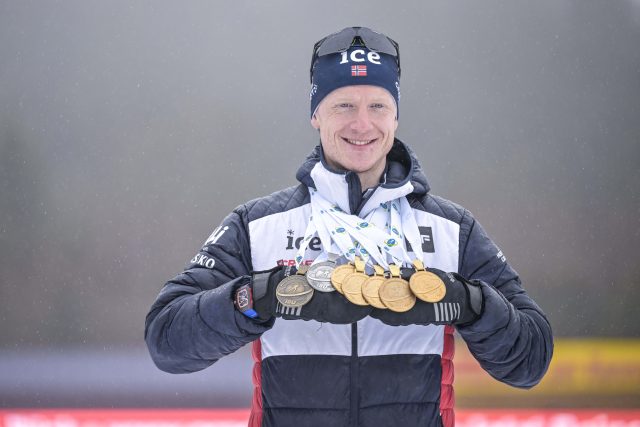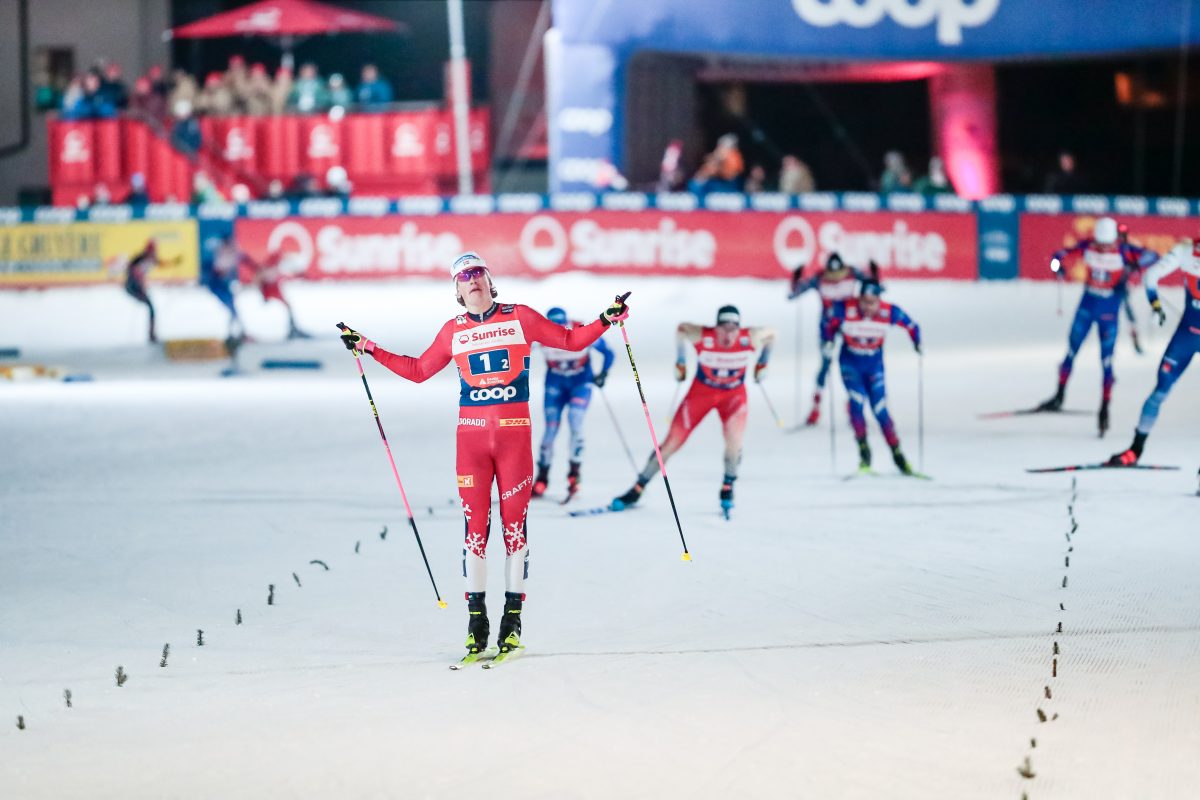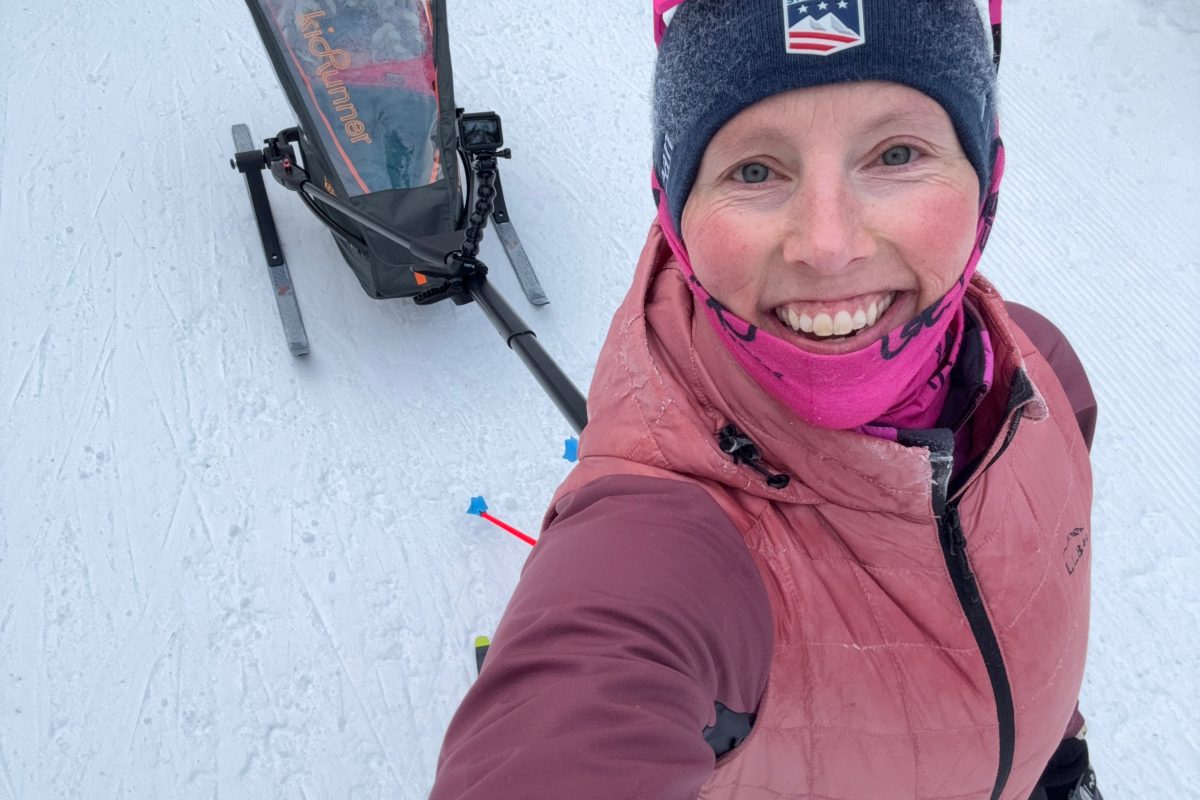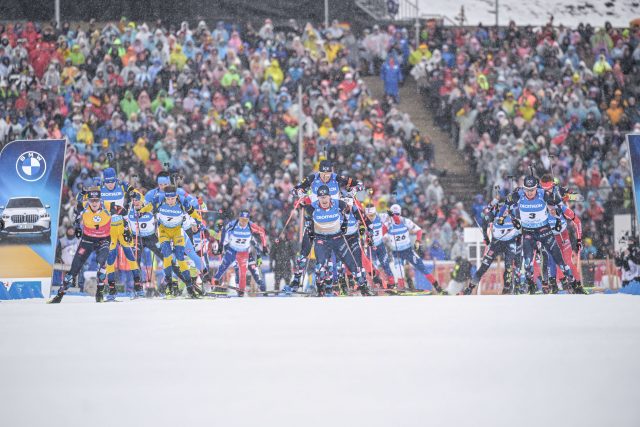
In spite of steady rain, over twenty thousand spectators packed the stadium and lined the course in Oberhof, Germany on Sunday for the grand finale of the Biathlon World Championships: the Mass Start. The 15 k race format is a head-to-head battle of ski speed and shooting composure featuring the top thirty athletes in the world. At World Championships, start berths are awarded to the top fifteen athletes in the World Cup Overall standings, plus the medalists and other athletes with the most cumulative points from the World Championships Sprint, Pursuit, and Individual races. With four shooting stages—twice prone and then twice standing—the Mass Start almost always comes down to the final meters.
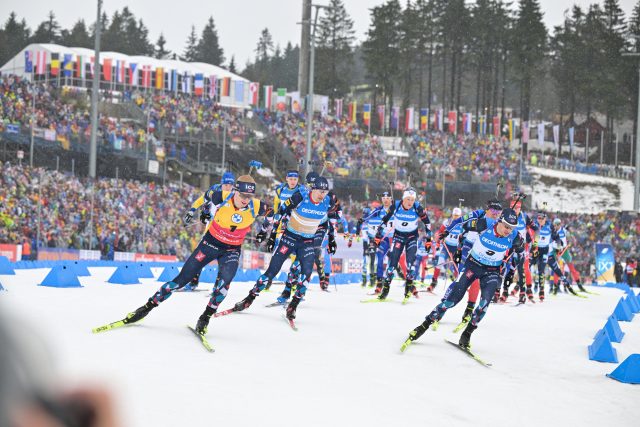
Going into Sunday’s Mass Start, Johannes Thinges Boe of Noway was the heavy favorite. Boe had already taken a medal in every event during these Championships, winning five golds and sweeping the individual events before sliding to silver with his Norwegian comrades in the Men’s Relay. In the Mass Start, Boe had a chance to take a record-breaking sixth gold medal in one Championships. But two Swedes got in his way. Sebastian Samuelsson shot the perfect 20/20 to take his first gold medal of the Championships, having collected three bronzes from the Pursuit, Individual, and Men’s Relay. His teammate, Martin Ponsiluoma (SWE) sped to silver despite two penalties. Boe missed three and had to settle for the bronze, still becoming the first man to win seven medals in seven events at one World Championships.
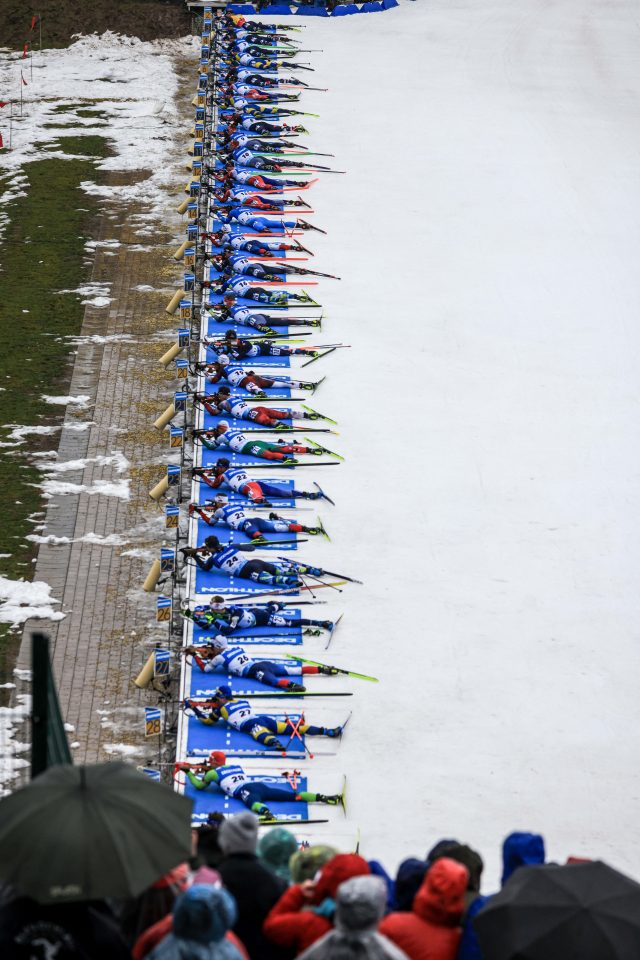
For the first three shooting stages of the race, Johannes Boe held onto tenuous control over his medal chances. In each of the first two stages he missed one, sending him into the 150 meter penalty loop for a set-back of about 23 seconds. But on each three kilometer ski loop he was able to make up that time, catching back up to the lead pack before the range. Those familiar with biathlon know how unusual it is to see an athlete ski off a whole penalty loop in just three kilometers, but Boe’s ski speed is on another level relative to the rest of the field. Finally on the third stage Boe hit 5/5, leaving the range with a nine-second lead over Sebastian Samuelsson of Sweden, who had shot clean up until that point. Samuelsson and Boe were chased by their teammates, Martin Ponsiluoma (SWE) and Sturla Holm Laegreid (NOR). Boe arrived at the final shooting with an advantage of 11 seconds over Samuelsson, 17 over Ponsiluoma, and 28 over Laegreid. The medals were very much up for grabs.
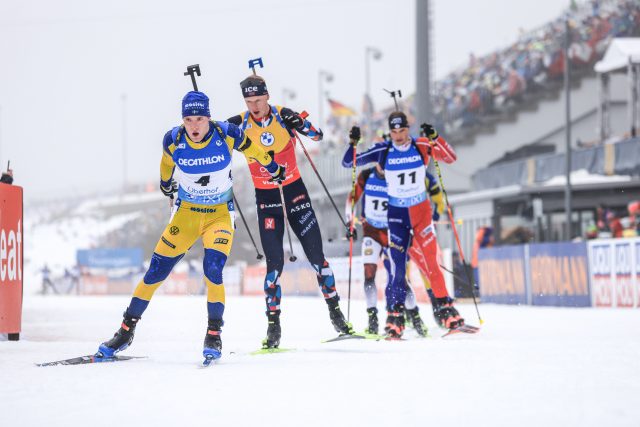
The standing shooting statistics for these four athletes are as follows: Boe (NOR) 89%, Laegreid (NOR) 83%, Samuelsson (SWE) 77%, Ponsiluoma (SWE) 75%. So the Norwegians looked to have an advantage. But statistics reflect the past not the future. Boe missed one, opening the door for his pursuers, and as he rounded the penalty loop he would be deflated to see both Swedes heading directly out onto the course with zero penalties. Boe followed six seconds behind. Laegreid had a chance to close the gap but missed one as well and found himself a distant 28 seconds behind Boe. A final three kilometer sprint would decide the medals.
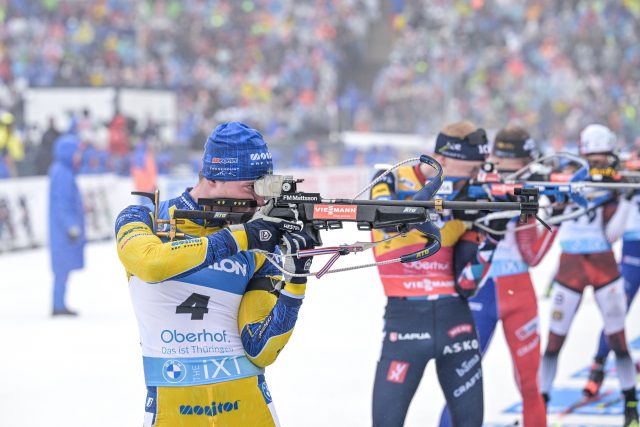
With only six seconds separating him from the gold medal position going into the final loop, Boe seemed poised to capture his sixth gold. But Samuelsson made an aggressive move right away out of the stadium up the Birxsteig climb. Cresting the hill at the 13.9 k split time, Samuelsson had gapped Ponsiluoma and extended his lead over Boe to a full 16 seconds. Demoralized and exhausted from playing catchup throughout the first half of the race, Boe let the gold and silver medalists slip into the distance while he maintained a comfortable cushion over fourth-place Laegreid.
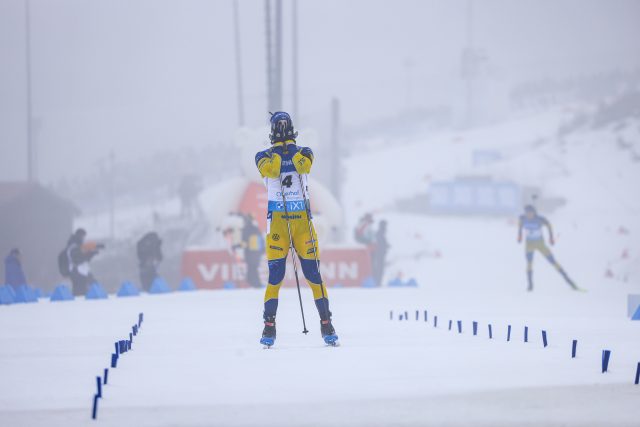
Samuelsson didn’t let up, eventually crossing the finish line nine seconds ahead of Ponsiluoma and 38 ahead of Boe. At 25 years old, Samuelsson captured his first-ever medal in the Mass Start format, and his first World Championship gold. Ponsiluoma repeated his silver-medal performance from last year’s Olympic Mass Start in Beijing. Though Boe didn’t manage to sweep the entire World Championships with seven gold medals, he still made history with five golds, one silver, and one bronze—the best record of any athlete in Biathlon World Championships history. After landing on the podium in every prior race at these Championships, Laegreid settled for fourth. Andrejs Rastorgujevs of Latvia and Quentin Fillon Maillet of France completed the top-six Flower Ceremony.
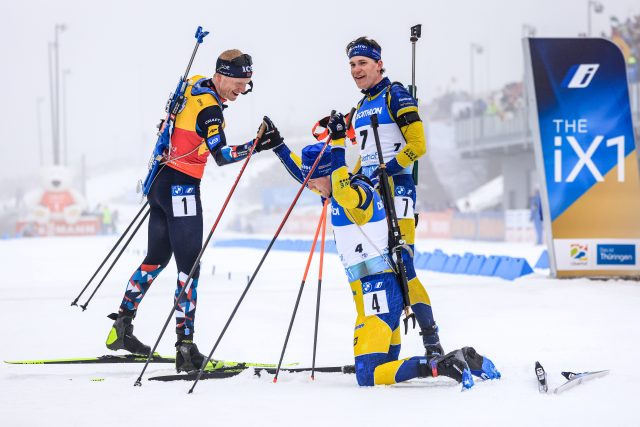
Biathletes will now rest up for a week before heading to Nove Mesto na Morave, Czech Republic, for the first of three World Cup stages in the final trimester of competition.
Biathlon World Championships Men’s Mass Start RESULTS
